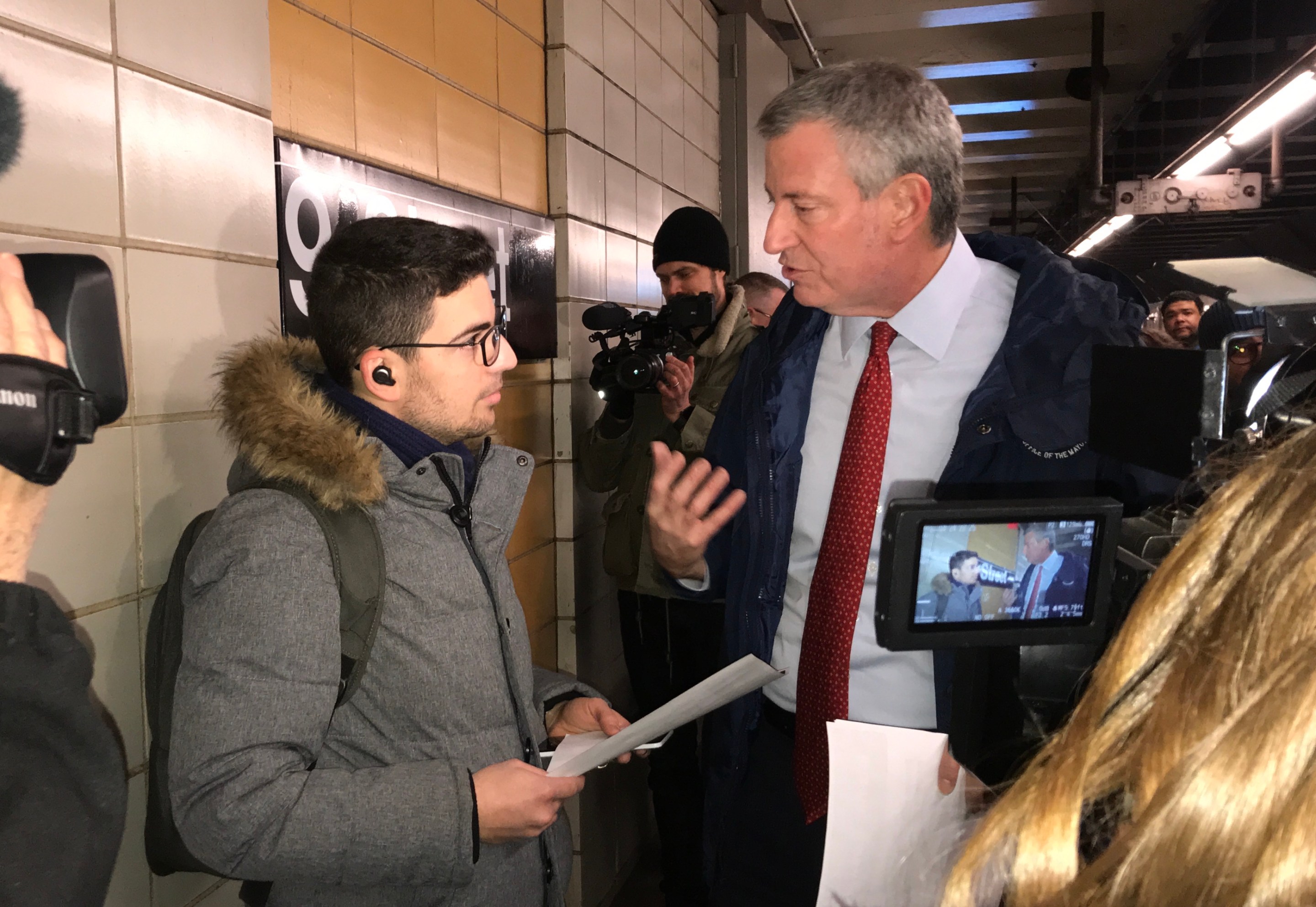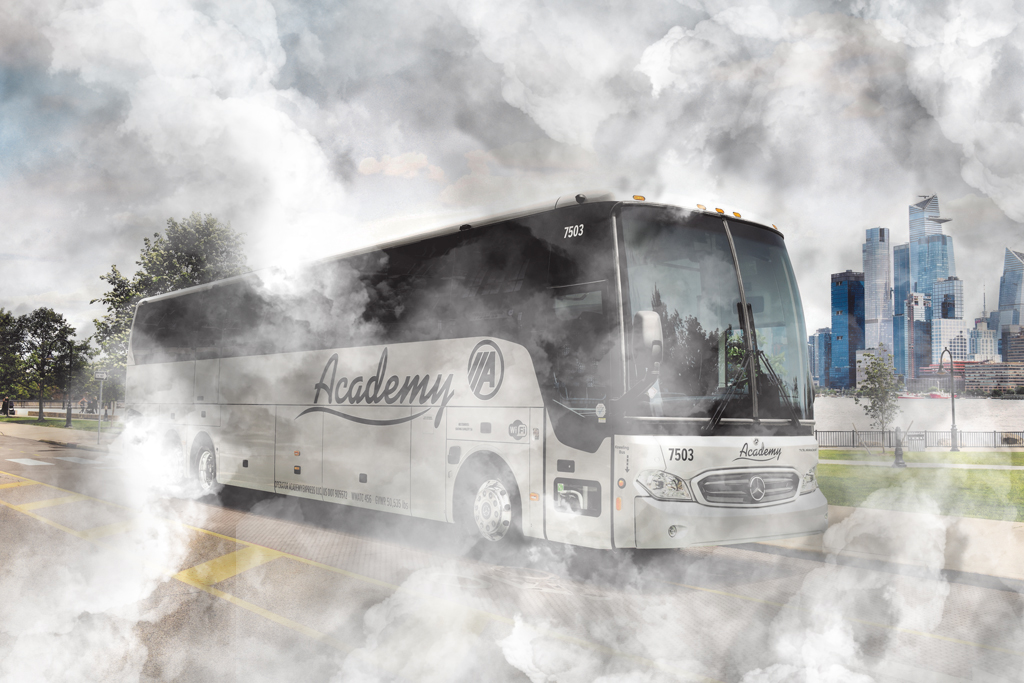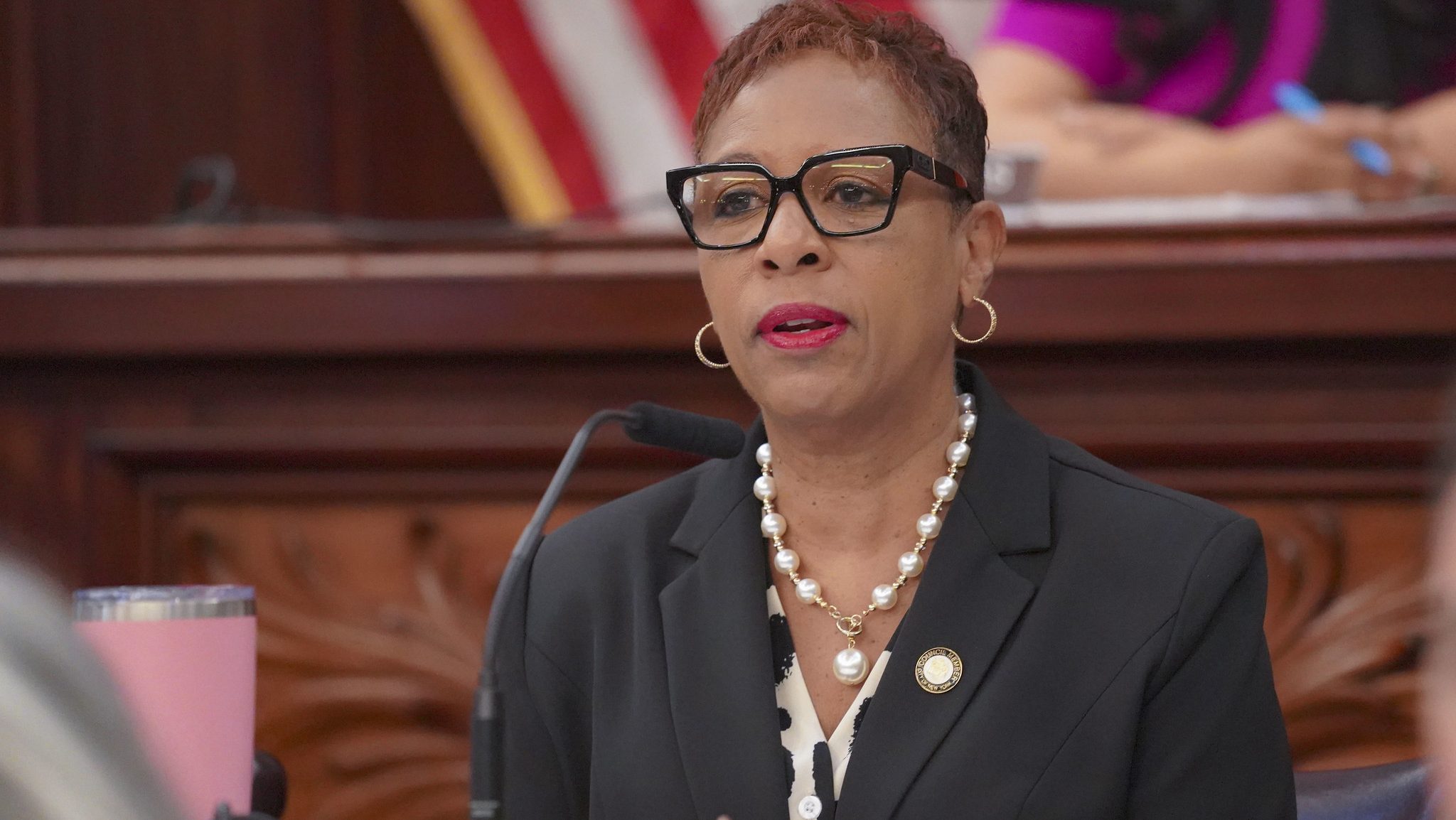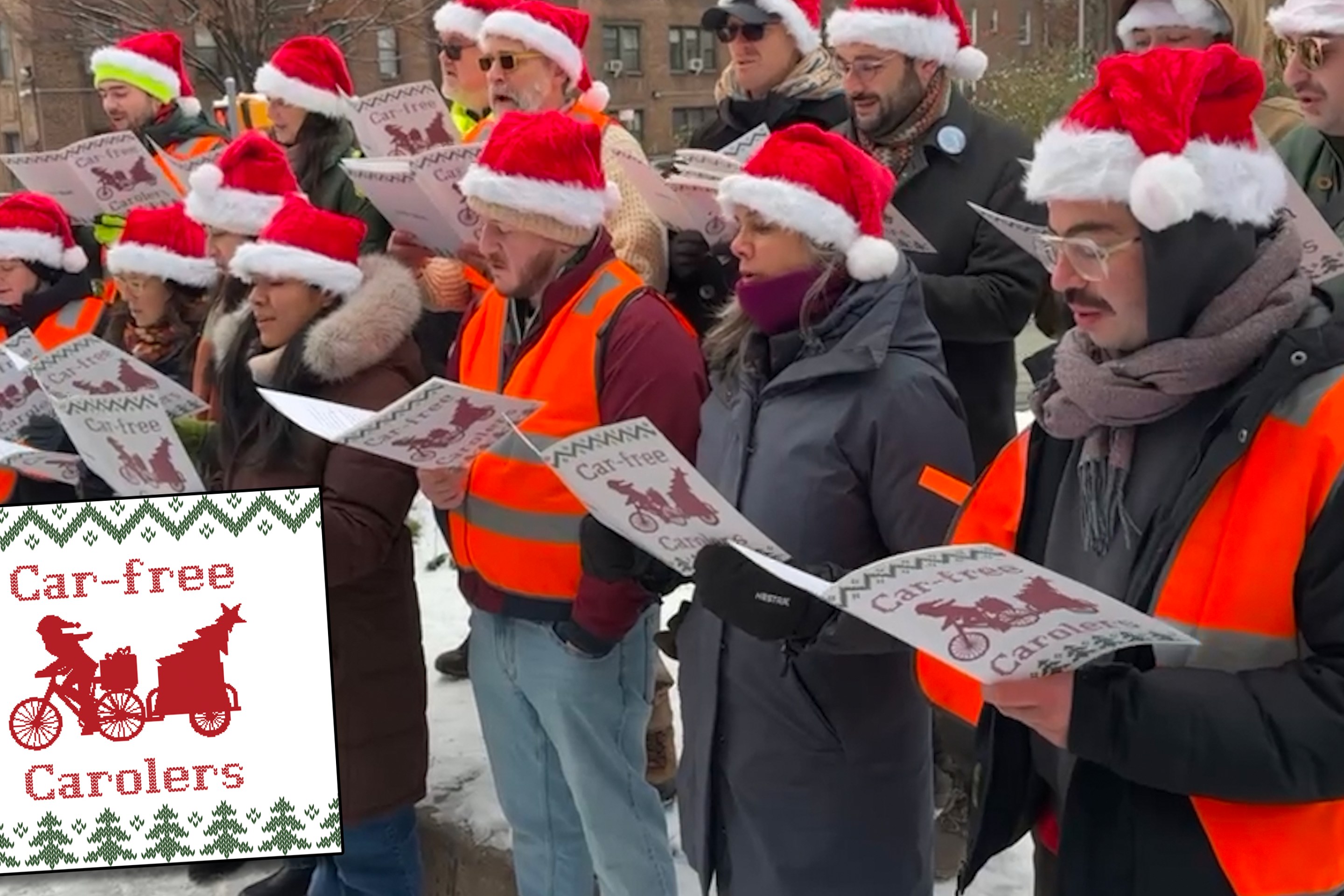"Better late than never" is a cliché for a reason — because it's true.
Mayor de Blasio's embrace of congestion pricing this week deserves to be praised, no matter how long it took him to come around to what the rest of us have long known: tolls on drivers entering the central business district is the best strategy for taking back control of our city's streets from the automobile and for funding crucial subway repairs and improvements.
On Wednesday, the mayor's full buy-in was on display in his photo-op subway ride from Park Slope to City Hall. Now, de Blasio has long resisted sardining himself with straphangers or feeling even a tiny bit of their daily pain, but it was an important bit of symbolism that he took the subway to chat up riders to support congestion pricing.
In comments to reporters later, de Blasio had the zeal of the recent convert — and made the argument that so many congestion pricing supporters have made for years: congestion pricing will be good for this city and its long-suffering riders. And it won't be bad for drivers, despite what their self-styled defenders in Albany say.
“This is what all of us in the city of New York need," he said. "If we don’t fix our subways, the economy won’t work and this place can’t be what it’s supposed to be. Drivers understand that, too. In the end, we have to create something that’s fair. [Congestion pricing] fixes the subways and makes sure that places that don’t have enough mass transit have it. And that means some of those drivers will have the option of taking mass transit instead.”
Most important: The mayor's prior opposition to congestion pricing was based on the fiction that tolling drivers entering Manhattan would be a regressive tax on the working class. That propaganda made it very easy for other politicians to oppose congestion pricing and call themselves champions of the working man and woman — even though reams of studies show that people who commute regularly into the central business district of Manhattan tend to be richer than their transit-using neighbors.
"This is a structural problem in the Democratic Party," said one Albany insider. "We all say we want to do the right thing for the environment or save the subway, but no one is willing to say to their constituents, 'You need to actually do something like stop using plastic bags.'" In this case, politicians need to ask drivers, who are choking our streets with pollution and selfishness, to pay.
The mayor's conversion will ripple to congestion pricing stragglers, some of whom told Streetsblog in the past that they were reluctant to support congestion pricing because the mayor himself didn't support it. Why put yourself out there if they mayor wouldn't have your back?
"I commend the mayor and I am truly ecstatic," said Assembly Member Robert Carroll (D-Brooklyn), a strong supporter of congestion pricing. "But now he needs to reach out to members in all five boroughs and come to Albany. There are tons of people who are still opposed, so he needs to say it every day. It's our existential issue. If he says it once on Brian Lehrer and doesn't say it again, that's not support."
One place where the mayor could start is by changing the very language of driving — something he has long been reluctant to do. If a lawmaker still says he or she is concerned about constituents who drive, the mayor needs to ask that lawmaker, "Why do you not support the subway? Why do you want more cars on the road? How can you say you support working-class people, yet you don't want to toll the wealthy to fund the subway?"
The mayor is obviously late to that argument. And he's obviously not blind to the leaves at the bottom of his afternoon tea: The election of true progressives such as Alexandria Ocasio-Cortez (over car-loving Congressman Joe Crowley) and a slate of liberals who defeated old-school senators and assembly members in Brooklyn and Queens has flipped the script in obvious ways (looking at you, Amazon deal) and not-so-obvious ways.
"The debate has been reframed," said State Senator Brad Hoylman (D-Manhattan), another supporter of congestion pricing. The freshman class of senators — Zellnor Myrie, Jessica Ramos, Julia Salazar and others — represent the same working-class communities as some congestion pricing opponents, but they understand that better transit benefits their constituents. They have been making that case every day."
Hoylman also said the mayor is also likely coming around to the "generational shift" of driving. "Today's New Yorkers are not as wedded to their cars as the previous generation was," he said.
The mayor still loves his car. But he's taken the first step towards reclaiming our city from the destruction wrought by the automobile. And for that, he deserves praise.
Gersh Kuntzman is Editor-in-Chief of Streetsblog. When he gets angry, he writes the Cycle of Rage column (though clearly, he's not always angry!). The columns are archived here.






